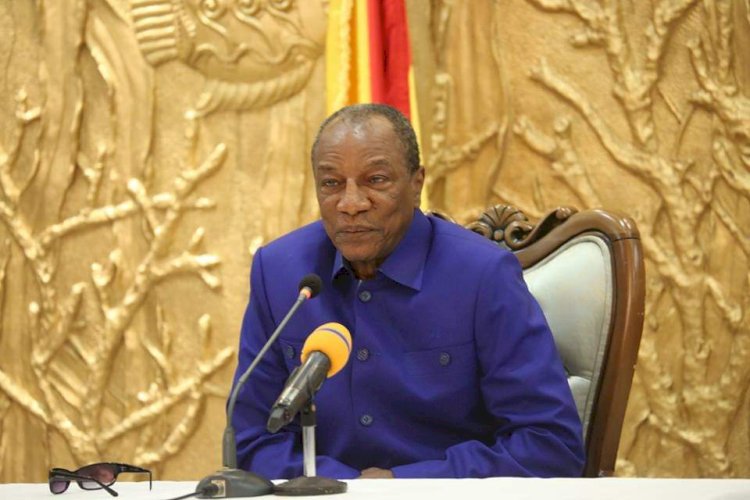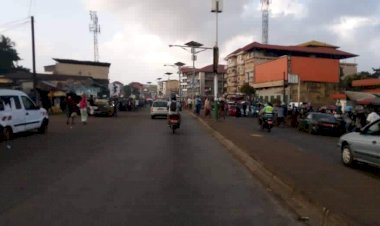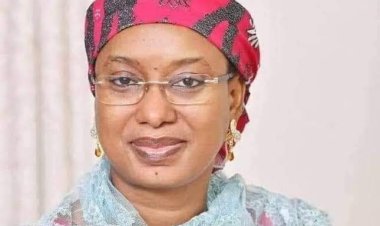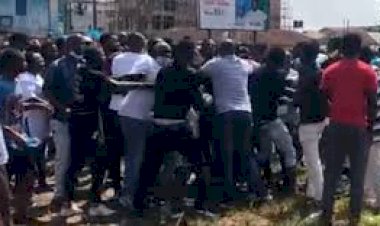Closure of borders with Guinea-Bissau, Senegal and Sierra-Leone - Alpha Condé and his economic war against the Fulani.

To complete the constitutional coup he instigated in Guinea and divert attention to the assassinations that accompanied him, Alpha Condé continues to deploy his panoply of ethnic repression. Alpha Condé based his dictatorship on targeting Fulani Guineans. Anti-Fulani segregation in the public service and in the ranks of the security forces is routine. The 2009 crimes against humanity, which primarily targeted Fulani, have been the subject of a scandalous denial of justice by Mr. Alpha Condé for more than eleven years.
Since 2010, Pottal-Fii-Bhantal Fouta-Djallon and several other organizations have denounced the deployment of these measures which mainly target the Fulani community of Guinea. As a reminder, below are some salient points of Alpha Condé's systematic anti-Fulani segregation:
Plantations of Fulani citizens in Lower Guinea are destroyed by Labesanji, an organization acolyte of Alpha Condé, with the complicit silence of the state.
Shopping centers belonging to the head of Coordination Foulbé and Hal-Pular, El Hadj Ousmane Baldé are razed and the occupants evicted without notice, under the pretext of non-compliance with leases.
The districts mainly populated by the Fulani of Conakry are demolished and the inhabitants evicted without compensation. Example Kaporo Rails, Kipe-2 and Demodula.
The Fulani leaders of the main political party are arrested and thrown in prison where they languish for months without trial
In Conakry and other urban centers, hundreds of young Fulani are kidnapped at home or in the streets. They are held without trial and tortured in prison in Conakry or at the Soronkoni concentration camp, in Upper Guinea. Some are released after years of detention when they publicly pledge allegiance to Alpha Condé and his party.
“The security forces used to attack the private homes of the Fulani, beat up and often rape women - pushing ignominy to the point of urinating in cooking pots - without fear of the slightest repercussions.
The closure of borders with neighboring countries ten months ago is part of Mr. Alpha Condé's logic of tribal repression. Indeed, the closures concern countries headed by Fulani (Senegal and Guinea-Bissau) or a Fulani vice-president (Sierra-Leone). In Guinea-Bissau, Alpha Condé had intervened openly to prevent the investiture of President Oumar Embalo. Having failed to achieve his ends, Alpha Condé accuses him of wanting to destabilize his regime. In the case of Sierra Leone, Alpha Condé attacked the vice-president whom he accused of the same facts, without evidence.
Aware of the illegitimacy of his regime, Alpha Condé decided to do everything possible to survive, to the detriment of the Fulani community of Guinea. He masks the carelessness he displayed for ten years by equating political competition with ethnic rivalries. He makes the Fulani community his target to divide the social forces of the nation. It pursues a deliberate policy of economically weakening the Fulani of Guinea by the unilateral strangulation of thousand-year-old trade circuits between Fouta-Djallon and the neighboring countries of Guinea.
The closing of the borders and his current diplomatic offensive to reopen them seek to shift the debate and infiltrate his crimes with hundreds of assassinations and injuries that have allowed him to run for a third term. The closures of border workers severely penalize cross-border economic operators who are almost all Fulani. The presidents of Senegal and Sierra Leone surely want to alleviate the considerable losses suffered in recent months. On the other hand, Alpha Condé seeks to use them to impose his diktat with conditions of reopening.
Pottal-Fii-Bhantal Fouta-Djallon takes the opportunity to draw the attention of the governments of Senegal and Sierra Leone to the dangers of the border reopening agreements. The clauses refer vaguely to the economy. They are more focused on securing the illegitimate government of Mr. Alpha Condé. For example, they require mixed patrols with the armies of neighboring countries. These patrols in porous and ill-defined borders carry with them risks of all kinds of abuse on border populations, as the history of Guinean dictators with neighboring states has amply proved.
In addition, given his proven animosity against the Fulani presidents, Alpha Condé will not fail to exploit these patrols with infiltrations of agent provocateurs to pit the military of neighboring countries against the Fulani community or their own government. Domestically, the agreements allow Alpha Condé to continue to raise the specter of external threats as a justification for the ongoing repressions against the opposition, the systematic exclusions of the Fulani and the theft of their property.
Pottal-Fii-Bhantal Fouta-Djallon takes the same opportunity to challenge ECOWAS and the African Union on the closure of borders.
During the recent crises and violation of human rights in Guinea, the two African organizations will have shone with guilty silence, if not for partisan participation. The United States and the European Union have shown more concern against the Alpha Condé regime than have African community organizations. It is high time for ECOWAS and the African Union to pull themselves together and end their support for repression in Guinea, as mandated by their charters. Alpha Condé violated the basic rules of the African Union and ECOWAS with impunity. He set up a system conducive to genocide against the Fulani ethnic group in Guinea. If ECOWAS and the African Union want to be taken seriously and maintain a minimum of credibility, it is essential that they take a serious look at the Guinean situation. As President Embalo of Guinea-Bissau suggested, they must "tell Alpha Condé the truth."
At a minimum, the African Union and ECOWAS should take targeted sanctions against state terror sponsors in Guinea - like the European Union. To put a stop to the repressive madness of Alpha Condé, African community organizations should dispatch an investigative mission to Guinea to visit detention centers for political prisoners and investigate serious violations of citizens' rights and their deliberate character. ethnic. Otherwise, cross-border agreements will not be just dead letters. Rather, they will serve to embolden the Alpha Condé clique and accelerate social clashes in Guinea.
THE CENTRAL COORDINATION COMMISSION OF POTTAL-FII-BHANTAL FOUTA-DJALLON.
AMPLIATIONS:
1. Representatives of the permanent members of the United Nations Security Council
2. African Union Security and Peace Council
3. ECOWAS
4. Senegalese Ministry of Foreign Affairs
5. Sierra Leone Ministry of Foreign Affairs
6. Ministry of Affairs of Guinea-Bissau
7. Office of the United Nations Commissioner for Human Rights
8. United Nations Commissioner on Violence against Women
9. Representative of the European Union in Guinea, Embassies of France, United States, England, China and Russia in Guinea
10. Representative of the European Union to the UN
11. United States Department of State Global Justice System
12. Guinean embassies to the United Nations and the United States
13. Human Rights Watch / FIDH / OGDH
14. Guinean Associations of Victims: AVIPA, AFADIS, AGORA
15. Amnesty International


















































